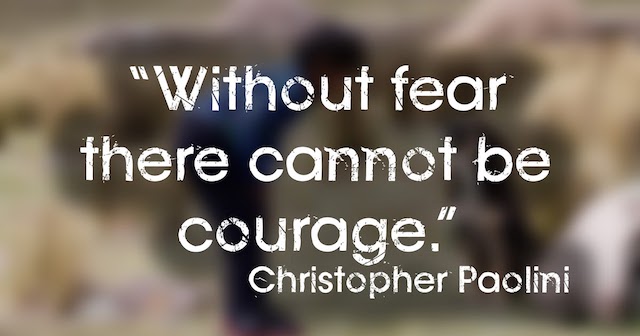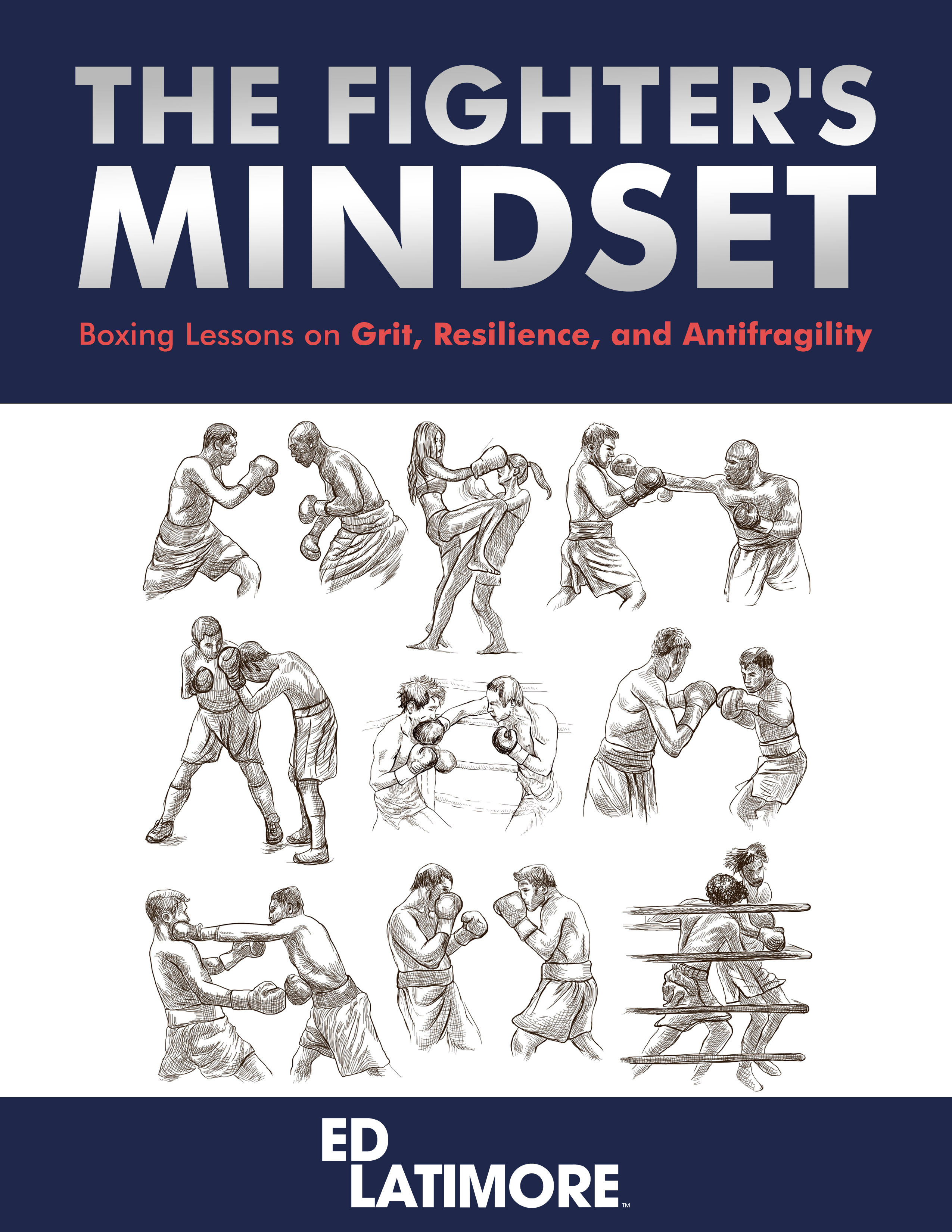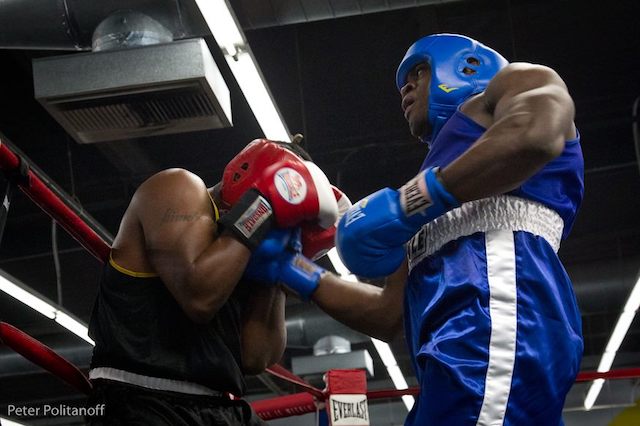When I was both an amateur and professional boxer, I thought a lot about how to overcome fear.
Dr. Karl Albrecht once categorized all fears into five distinct categories:
- Extinction: The fear of no longer existing or having an impact.
- Mutilation or bodily invasion: The fear of harm to our physical body.
- Loss of autonomy: The fear of confinement or restriction; a loss of freedom or the ability to make decisions on your own.
- Separation, abandonment, or rejection: Studies have shown that being ignored registers the same type of pain as being physically attacked.
- Humiliation, shame, worthlessness: This is what Albrecht called the “ego death”. We fear failure, criticism, or worthlessness in the eyes of society.
We all seek competence, autonomy, and significance. In other words, we all want to be good at what we do, capable of doing it on our own terms, and recognized for it by others.
All of our fears center around what life would be like if we were unable to reach those aims. Anytime we yield to fear by altering our course of action or state of mind, the fear wins and our hope of becoming exceptional dies.
The first thing you have to understand is that it’s impossible to erase fear; you simply learn to perform despite it. Fighting not only forces us to confront all of these fears, but to excel in the face of them.
Every fighter naturally feels scared at some point or another because every fighter is human. At times our approach and performance may lead you to believe otherwise, however the man in the ring is mortal, flawed, and human just like you.
I figured out a number of strategies that helped me to perform well despite facing real fear and danger inside the boxing ring. I think that many of them can be used by you to help you manage your fears, phobias, and anxieties as well.
1. Our biggest fear in life is being vulnerable
All of your fears come back to vulnerability.
You don’t fear pain. You don’t fear dying. You don’t even have a fear of failure.
You fear that which you can’t control.
This is why people fear public speaking more than death. The speaker is completely vulnerable and lacks control over the audience’s reactions.
Perhaps they’ll think you’re brilliant. Perhaps they’ll think you’re a fool. Normally you wouldn’t care what they think, but public speaking opens you up to their judgement. The abuse of this vulnerability is what you really fear.
All physical fear and anxiety are based on this concept. Regardless of how tough you are, your worst fears about dying are related to facing something inevitable that will not end quickly.
It’s not the burning, the drowning, the spiders, the snakes or the heights that scares you. It’s facing something that exposes your human vulnerability in a way that demonstrates how powerless you really are.
You don’t have a fear of public speaking or talking to strangers. You’re really afraid of being vulnerable.
This is because your vulnerabilities remind you of how worthless you are in the grand scheme of things. Talking to strangers can be a great way to get over fears.
What is the difference between fear and anxiety?
Logically, you understand that rejection is meaningless, humiliation is temporary, that people’s opinions don’t matter, and that you have to die. Emotionally, you fear that your existence is worth so little that the judgments of others actually do matter.
You worry that your life is so fragile that your fears have control over it. Once you realize that most people don’t care about you, the worst-case scenario never happens, and the world will go on when you die, your social anxiety will cease and you can enjoy your daily life to its full potential.
2. Facing fear is easier than ignoring it
The only way to free yourself from fear is to accept that you are afraid. It is only by acknowledging this that you can become courageous.

Once you accept that you do care what others think and that your life can end at any time, you recognize your fears for what they really are. Fears are nothing more than a way for your ego to reinforce your false wall of security.
You’re afraid that your wall of personal security isn’t as high or strong as you believe. Rather than test its structure so that you can discover its weaknesses and fortify them, you avoid putting the wall to the test.
You know the odds of dying in a plane crash. Instead of exposing your personal security wall to this fact to test it, you avoid flying. Instead of learning to flourish in your vulnerability, you hide behind the wall and hope that it protects you when the world judges you.
What are some possible solutions to this fear?
Accept that your wall isn’t perfect and that it will be tested.
Do not hide. Embrace your weakness. Recognize that your personal wall is—at best—useless and—at worst—debilitating. Your fears of being vulnerable, worthless and out of control can never be conquered. They can only be mitigated and managed.
This process cannot begin until you acknowledge your frailty. Only once you admit that you have a deficiency are you capable of fixing it.
3. Preparation can help with overcoming fear
Fighters combat fear through preparation.
A training camp for a fight is less about developing skill and getting in shape and more about building the confidence and constitution to handle battle. By the time a fight camp starts, the fighter already knows how to fight. At the very least, he won’t get much better at it within a 6 to 8 week period (the typical time between signing a fight contract and the date of the fight) before a bout.
The drilling, sparring, and training that takes place during a camp makes a fighter the best version of himself he can be. It allows him to develop the confidence needed to face an opponent trained to hurt him.
How can I train my mind to overcome fear?
Fear is nothing more than a sign that you have something important to deal with. For this argument, I also place anxiety problems and panic attacks in this category. The people who have success managing their fear and anxiety are essentially doing what fighters have been forced to figure out by virtue of their profession:
Failing to prepare is preparing to fail. You become aware of that possibility and it terrifies you.
Fighters have the same fight-or-flight fear response, be we don’t think about the possibility of escape. Instead, we focus our energy on getting ready to win the fight. The better prepared they are, the less fear they carry with them into the bout, and the more likely it is they’ll have success.
4. Learn how to use fear to your advantage
There is a phenomenon known as the “excitation transfer.” It works like this:
Fear causes an increase in heart rate, blood pressure, and respiration. While these feelings are the markedly unpleasant products of fear, these feelings persist even after you’ve dealt with your fear. However, when you overcome whatever you’re fearful of, you likely experience pleasant feelings of triumph and victory.
Now, instead of focusing on the fear and anxiety, you felt before and/or during the encounter, you mainly focus on and remember the satisfaction and growth.
This behavior is automatically present in thrill-seekers, adrenaline junkies, and people who love scary movies. It’s not that they don’t experience fear like the person who enjoys bungee jumping or roller coasters. It’s just that they identify more with the positives surrounding the event—the social bonding or feelings of admiration that comes from onlookers—than the fear itself.
Their fear response is completely different than other people. In other words, they feel fear but they enjoy it.
Lean into stress, fear, and panic.
— Ed Latimore (@EdLatimore) September 21, 2020
Embrace anxiety, nervousness, and doubt.
To be free from these influences, don't try to escape.
You can't outrun them.
Instead, consume them and grow stronger as a result.
Therefore, when they think of the event, they feel more excited than terrified, unlike the rest of us. The fear they experience throughout the event is leveraged with positive feelings, so they continue to seek out behavior that elicits that response.
How to use this to get over fears in your life
There is no escaping fear.
There is only learning how to use it to your advantage or, at the very least, learning how to operate in spite of it. The excitation transfer is a demonstration of the way that you can trick yourself into being fired up at the prospect of facing something fearsome.
5. Use mindfulness to shift your focus
Your mind is so powerful that it can vividly imagine all of the ways that fears can inflict harm on you. Once your mind has conjured up the worst possible scenario, it then works overtime to ensure that you can think of nothing but this impending doom. In many cases, your fearful thoughts have more power over you than the threat.
Research gathered at the Massachusetts Institute of Technology by Earl Miller shows that people generally cannot focus on more than one thing at a time. Of course, the challenge is being able to keep your mind on the same task that generates your fear without feeling the effects of your fear. This stability (noun) can be accomplished by focusing on the process rather than the outcome.
When fighters walk to the ring, it is a truly terrifying moment. It’s a lonely walk, having to face certain pain and possible embarrassment. Fear of these unpleasantries is amplified because there seems to be nothing else to think about besides the fight. At the very least, there is nothing else that you should be thinking about because if you don’t keep your mind on the fight, you will focus on fear instead.
The problem here is that you’re thinking of the outcome and the uncertainty that comes with it, but fear and uncertainty are products of one another:
You’re afraid because you don’t know if you’ll be successful. You don’t know if you’ll be successful because you’re afraid of failing. No matter how well you train or how well you prepare, the outcome is still not a guarantee, and this uncertainty terrifies you.
What are some benefits of overcoming fear?
Successful people focus on the process instead of the outcome. There are many components to your specific process that you can choose from, but you do have control over something.
For example, in a fight:
- I can’t control the outcome, but I can control my level of training.
- I can’t control the opponent’s skill, but I can control my conditioning.
- I can’t control my environment, but I can control my breathing.
The only thing you’re in control of is how you live your life. Once your mind focuses on this, your fear of what you can’t control fades away.
Boxing Lessons on Grit, Resilience, and Antifragility
In this e-book, I teach you 20 mindset lessons I learned from my 13-1-1 professional heavyweight boxing career.
Use these to conquer any challenges you face, in the ring or in life.
Learn how to develop the mindset of a fighter, from a fighter, so you can win the battles you face.

6. Make yourself familiar with the danger
The first time you do anything is terrifying.
For this reason, familiarity is a great fear reduction agent. If you repeat something enough times–surviving and learning from the mistakes you make along the way–then you stop feeling anxious about doing it.
Anyone who’s taken an exam in college knows that the most valuable practice tests are the old professor’s exams. It allows you to become familiar with his style of testing WITHOUT incurring the true penalty of making a mistake. It’s why simulators are wonderful training. This is why sparring is so valuable for boxing.
Can a person overcome fear?
Preparation and familiarity feed one another. Your familiarity increases with your preparedness and vice versa. This reduces uncertainty and increases your self-confidence. That is the part we fear; being forced to overcome a problem in real-time that we’ve never faced before.
This is the message of fear: there is uncertainty on the horizon, and you must prepare for it, lest your life (or parts of your life) will be in danger. Head that signal and you will master your fears.
7. Take action for success in the face of your fear
It’s difficult for fear and action to exist in the same domain.
When you’re in motion, fear loses its grip on your life. This is why you grow more fearful and anxious as you wait for something to happen with nothing else to fill the passage of time but your thoughts. However, motion not only removes the feeling of fear, but it often makes you forget what exactly it is that you were afraid of in the first place.
During the fight, any nervousness or pre-fight anxiety a fighter has is erased when he takes the first punch. It doesn’t have to be a big punch, but that first shot lets him know that his fears of crumbling from a punch are unfounded.

This reassurance is part of it, but another big reason is that awakens him to the reality that he’s in a real fight. It is impossible to perform and nurture your fear. Since performance is more important, your fears evaporate.
What causes fear?
Yous spend too much time thinking about what can go wrong. Get out of your head.
It doesn’t matter what type of fear you’re dealing with, all fear lives in the mind and feeds on stagnation. When you take an action, you don’t have the opportunity to be afraid—mainly because you’re too busy facing what you’re afraid of. In this contest, you realize that you have nothing to fear in the first place.
Recap of 7 lessons from boxing on fear, anxiety and phobias
- The real fear is vulnerability
- Facing fear is better than ignoring it
- Preparation helps assuage fear
- Learn how to use fear to your advantage
- Shift your focus away from your fear
- Become more familiar with your fear
- Take action in the face of your fear
There’s no way around being afraid. It’s bullshit if someone says they aren’t afraid of something. Maybe it’s low-level background anxiety that they’ve learned to manage, but it’s always there.
When you are on the verge of being pushed out of your comfort zone is when you will feel the most fear. New jobs, performing in front of others, meeting new people, risking your life (for entertainment or obligation), etc. These things push you into a realm of uncertainty. This is a place where you are not sure if you will come out better or worse, safe or harmed, or dead or alive.
There will always be something to fear. But because there’s always something to fear, this means ultimately that there is nothing to fear.
Until then, the rest is up to you.
Boxing Lessons on Grit, Resilience, and Antifragility
In this e-book, I teach you 20 mindset lessons I learned from my 13-1-1 professional heavyweight boxing career.
Use these to conquer any challenges you face, in the ring or in life.
Learn how to develop the mindset of a fighter, from a fighter, so you can win the battles you face.





